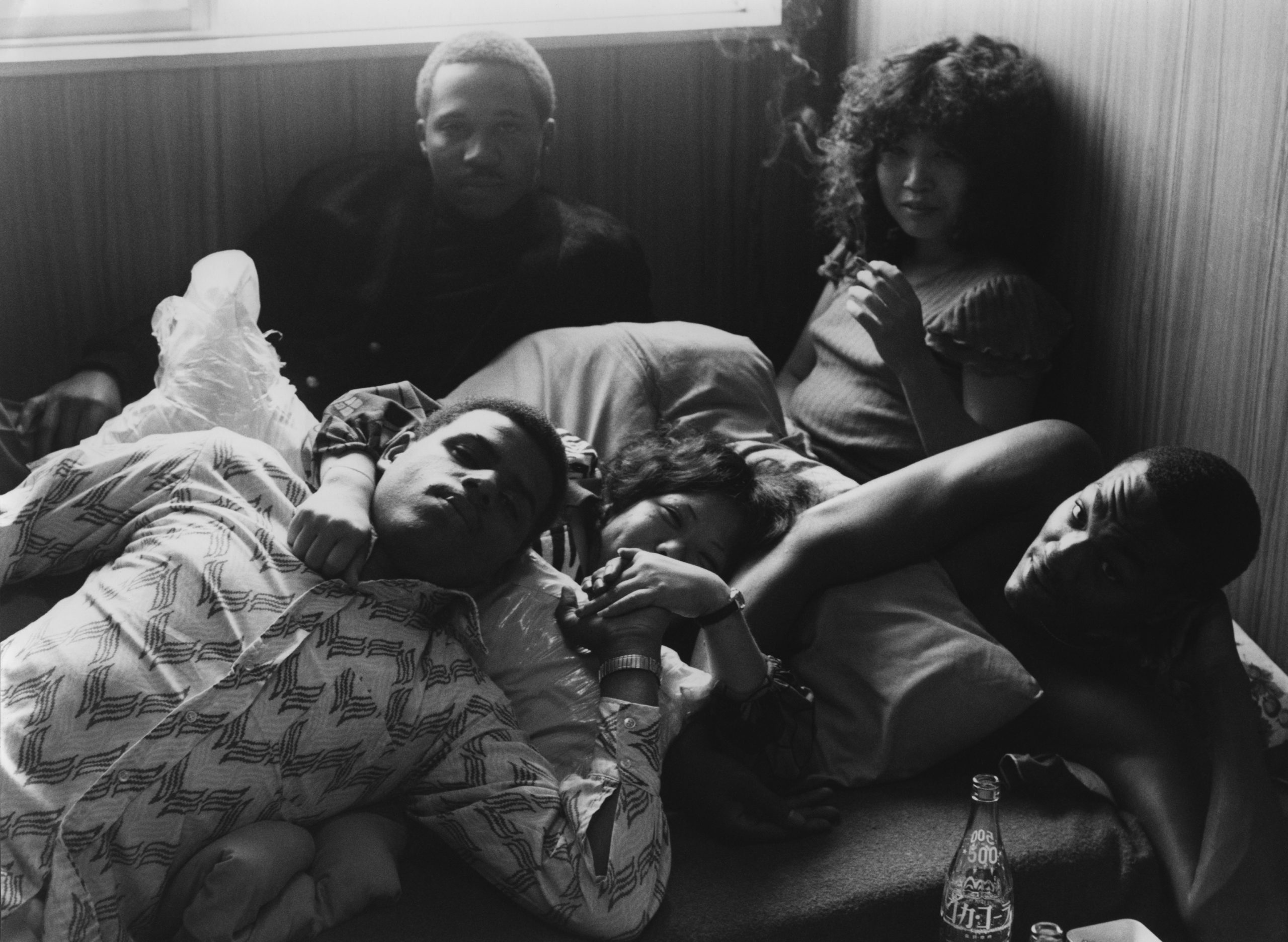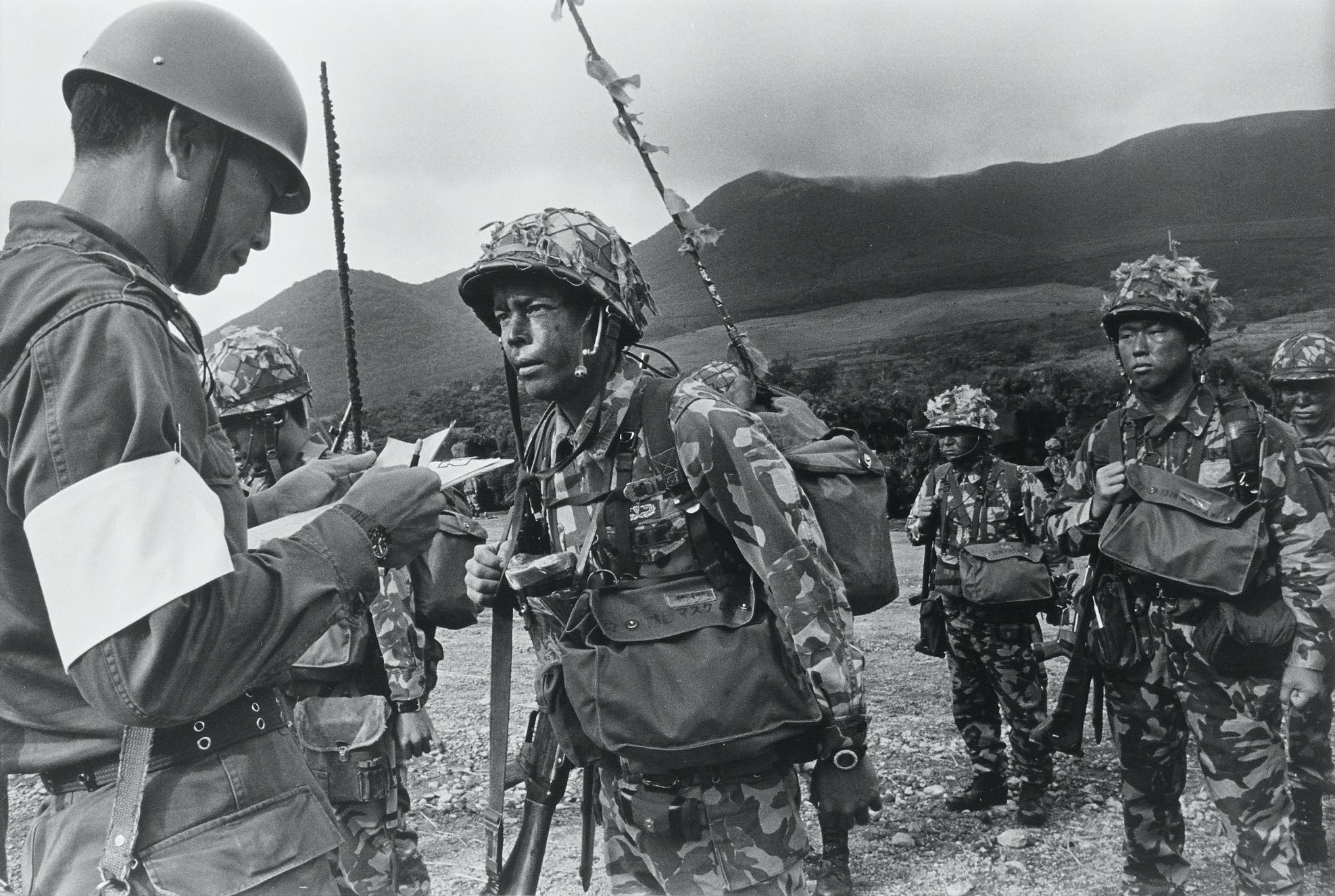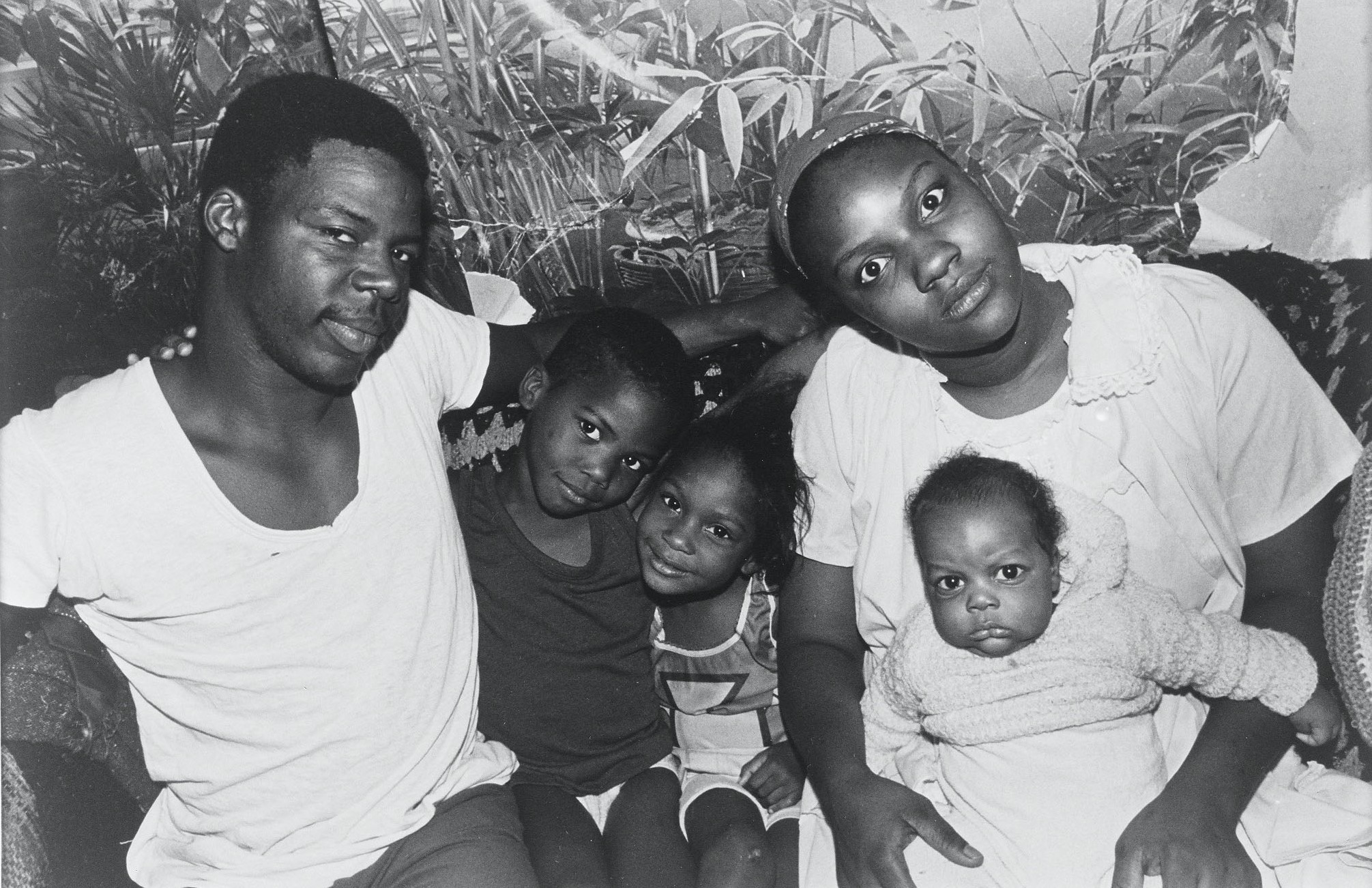Born and raised in Okinawa during its occupation by the US military, for over three decades Ishikawa has documented narratives of tension, joy, and marginalisation on the southern Japanese island
Following the Japanese surrender at the end of the second world war, the US took control of Okinawa, the southern islands of Japan. In 1971 the islands were handed back to Japanese administration, but the military’s presence is still pertinent today, with army bases occupying almost a fifth of its land.
Born in Okinawa in 1953, Mao Ishikawa grew up hearing stories of soldiers brutalising the local population. Whether intentional or accidental, it seemed that they never faced repercussions. It appeared that the constitution did not protect Okinawans, which made her question their identity within Japan, and whether they were, in fact, Japanese. In her new monograph Bad Ass and Beauty – One Love, which spans 15 series across over three decades of work, Ishikawa explains how this very question led her to photography in the early 1980s. She wanted to document the US bases – which still cover 25 percent of the islands today – and investigate their place and impact on Okinawa and its people.
Ishikawa rose to fame after publishing her first photobook, Hot Days in Camp Hansen!! in 1982. The series was made while working as a hostess in the racially segregated bars that surrounded the military base, and chronicles her and her friends’ relationships with Black American G.I.s. Although the men belonged to an institution whose presence in Japan remains contentious to this day, Ishikawa felt that there were similarities between the treatment of Okinawans by mainland Japanese to that of Black soldiers by the US military. She photographed couples relaxing in bed, enjoying an afternoon at the beach, and drinking in the evening: the work that these men and women did is depicted as just one part of their everyday lives. The local anti-military base movement criticized Ishikawa for her positive depiction of American soldiers, but to this day, the artist insists she can love individuals while despising the wider institution they serve.
Since then, Ishikawa has developed a diverse and nuanced practice on borders and differences. After the publication of Hot Days in Camp Hansen!!, she visited a Black American G.I. friend in Philadelphia, to understand how he became a soldier stationed in Okinawa. In the resulting series, Life in Philly’s (1986), scenes of unabashed joy are set against a backdrop of poverty and marginalisation, sharing common themes to Ishikawa’s work on communities in Japan, suggesting that people are not so different after all.
Another notable series included in Ishikawa’s latest monograph is A Port Town Elegy (1990), for which she photographed the dockworkers and fishermen who blew off steam at a bar she ran in Okinawa. The stench of beer almost emanates from the photos, yet Ishikawa manages to capture the moment before regret starts to form, when everything seems possible and everyone is wonderful. Philippine Dancers (1988-89), meanwhile, documents the Filipinos who eventually replaced Okinawan women in the entertainment districts surrounding the US bases, as their wages were lower due to their immigration status. The series suggests competitiveness between the girls during work hours, but camaraderie when off duty.
Ishikawa depicts activities that may be considered shameful in Japan, such as prostitution, inebriation, and interracial relations, in a manner that is frank and tender. She focuses on the joy each subject feels, rather than the disapproval of onlookers. “Human beings have an ugly face and a beautiful face,” Ishikawa writes in the monograph. “They tell you lies and they tell you the truth. They are sweet, and they are violent. All of these things make a person. I want to see everything.”
Bad Ass and Beauty – One Love by Mao Ishikawa is published by T&M Projects. Ishikawa is currently exhibiting her work at Okinawa Prefectural Museum and Art Museum until 06 June 2021.




